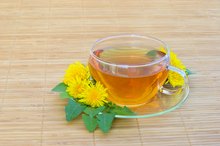Gallbladder Stones & Ayurvedic Treatment
Your gallbladder is a small abdominal organ that assists with digestion. It releases a compound called bile into the small intestine to aid with fat breakdown and absorption. Bile particles can build up to form gallbladder stones, and if gallstones grow large enough, they can cause pain, nausea and harmful digestive problems. Ayurveda, traditional Indian medicine, treats gallstones by targeting metabolism and liver function.
Gallstone Development
Gallstones can develop from too much cholesterol or bilirubin in the gallbladder, or from the gallbladder not emptying completely. However, scientists are unsure of the exact trigger that causes gallstone formation. If you are a woman, have a family history of gallstones, are overweight or obese, eat a high-fat diet or have diabetes, you are at greater risk to develop gallstones.
Ayurveda View of Gallstones
Natural Ways to Pass Gallstones
Learn More
Ayurveda contributes gallstones to an imbalance in metabolism, the digestive system and other biochemical processes. Ayurveda practitioners believe Pitta is the elemental force that controls the digestive system. The thyroid, the primary organ responsible for metabolism, may also play a role in the formation of gallstones due to the link to slow metabolism.
Standard Treatment
Many people have gallstones but may never experience symptoms. However, if you have symptomatic gallstones that affect your quality of life, you can choose from invasive or noninvasive treatment. Nonsurgical treatment involves medications, either oral or injections, that dissolve gallstones. The National Digestive Diseases Information Clearinghouse notes that these medications act slowly and that gallstones commonly recur. Cholecystectomy refers to the surgical removal of the gallbladder, the only treatment that guarantees no further occurrence of gallstones. You do not need your gallbladder to live because the liver will eventually take over the gallbladder’s functions.
- Many people have gallstones but may never experience symptoms.
- However, if you have symptomatic gallstones that affect your quality of life, you can choose from invasive or noninvasive treatment.
Ayurvedic Treatment
Should Alcohol and Caffeine Be Avoided After Gallbladder Removal?
Learn More
Ayurvedic gallstone treatment includes detoxification, herbal medications and diet modifications 3. A common therapy is a liver flush, which can include olive oil, lemon juice and spices. Citrus fruits, vitamin C, tumeric and ginger may assist with reducing cholesterol in the gallbladder to prevent its buildup. You can also place a castor oil pack over the gallbladder area to purportedly alleviate pain and inflammation, improve circulation and promote healing of damaged tissues.
- Ayurvedic gallstone treatment includes detoxification, herbal medications and diet modifications 3.
- You can also place a castor oil pack over the gallbladder area to purportedly alleviate pain and inflammation, improve circulation and promote healing of damaged tissues.
Warnings
Alternative therapies, such as Ayurveda, typically involve herbs and other compounds that can have harmful reactions with your current medications or supplements. A licensed physician or Ayurvedic practitioner should monitor your treatment plan.
Related Articles
References
- “Human Physiology: An Integrated Approach”; Dee Unglaub Silverthorn, Ph.D.; 2006
- HomemadeMedicines.org: Gallstones
- Ayurmantra; Ayurvedic Treatment for Gall Bladder Stones; Ram Mani Bhandari; September 2011
- National Institute of Diabetes and Digestive and Kidney Diseases. Symptoms & Causes of Gallstones. Updated November 2017.
- Stinton LM, Shaffer EA. Epidemiology of gallbladder disease: cholelithiasis and cancer. Gut Liver. 2012;6(2):172-87. doi:10.5009/gnl.2012.6.2.172
- Johns Hopkins Medicine. Gallstones.
- National Institute of Diabetes and Digestive and Kidney Diseases. Dieting & Gallstones. Updated November 2017.
- Johansson K, Sundström J, Marcus C, Hemmingsson E, Neovius M. Risk of symptomatic gallstones and cholecystectomy after a very-low-calorie diet or low-calorie diet in a commercial weight loss program: 1-year matched cohort study. Int J Obes (Lond). 2014;38(2):279-84. doi:10.1038/ijo.2013.83
- Johns Hopkins Medicine. Gallstones.
- Mayo Clinic Staff. Gallstones. Mayo Clinic. Updated November 17, 2017.
- National Institute of Diabetes and Digestive and Kidney Diseases. Dieting and Gallstones. National Institutes of Health. U.S. Department of Health and Human Services. Updated November 2017.
- National Institute of Diabetes and Digestive and Kidney Diseases. Symptoms and Causes of Gallstones. National Institutes of Health. U.S. Department of Health and Human Services. Updated November 2017.
- Portincasa P, Di Ciaula A, Grattagliano I. Preventing a Mass Disease: The Case of Gallstones Disease: Role and Competence for Family Physicians. Korean Journal of Family Medicine. 2016;37(4):205-213. doi:10.4082/kjfm.2016.37.4.205.
Writer Bio
Ann Jamerson began writing ads and informational brochures for research trials in 2003 during an internship at an alcohol and drug research center. She assisted in writing and editing manuscripts concerning the breast cancer genes and psychosocial effects on affected patients. She received her Bachelor of Science in biology from the University of California, San Diego and is currently attending nursing school.









